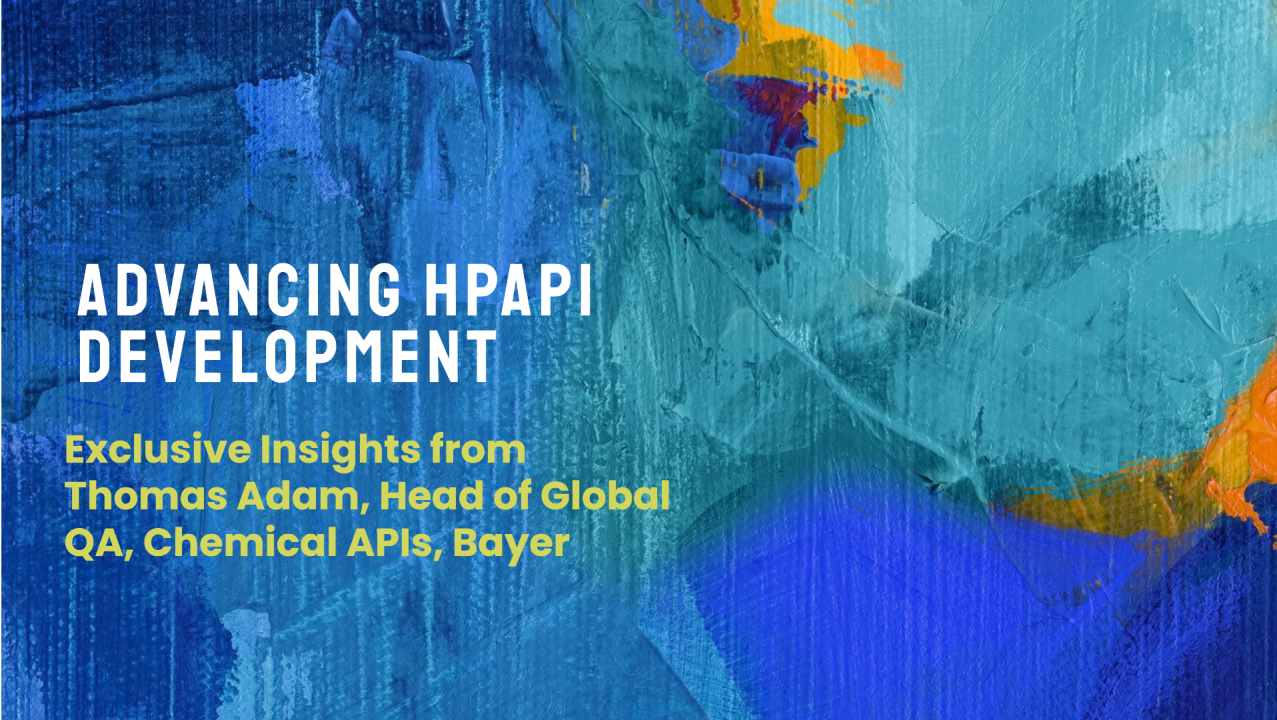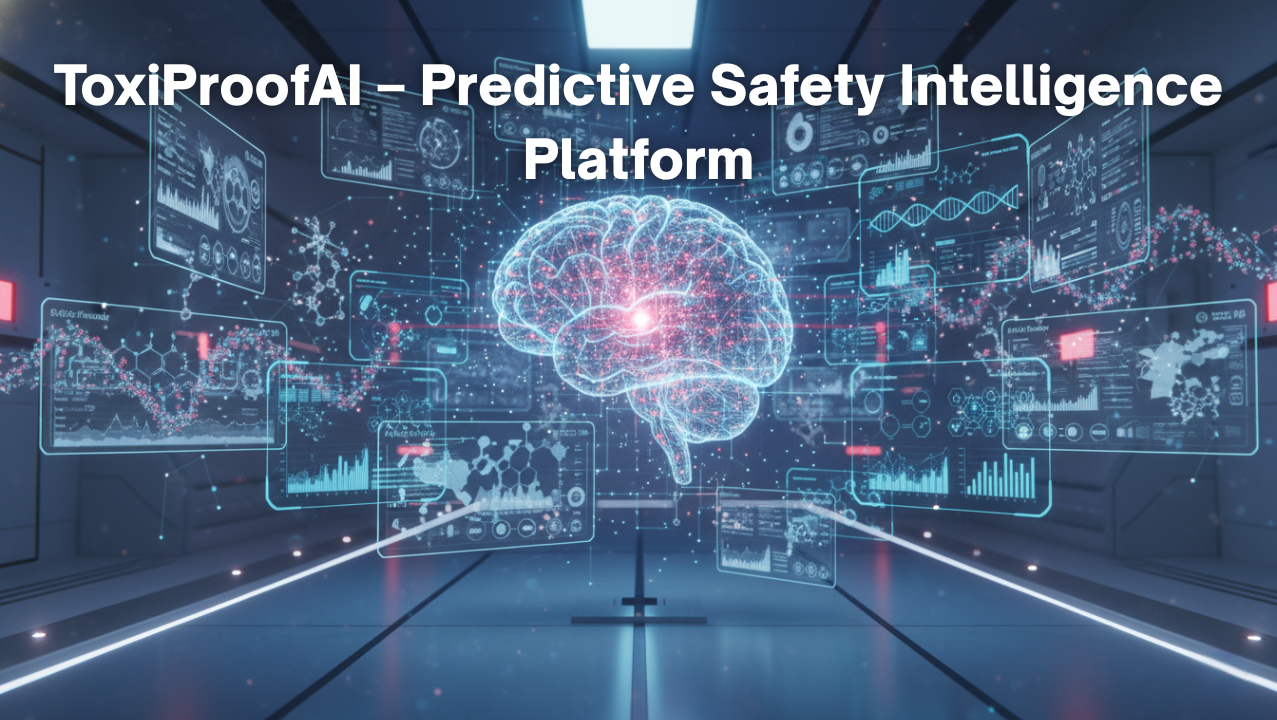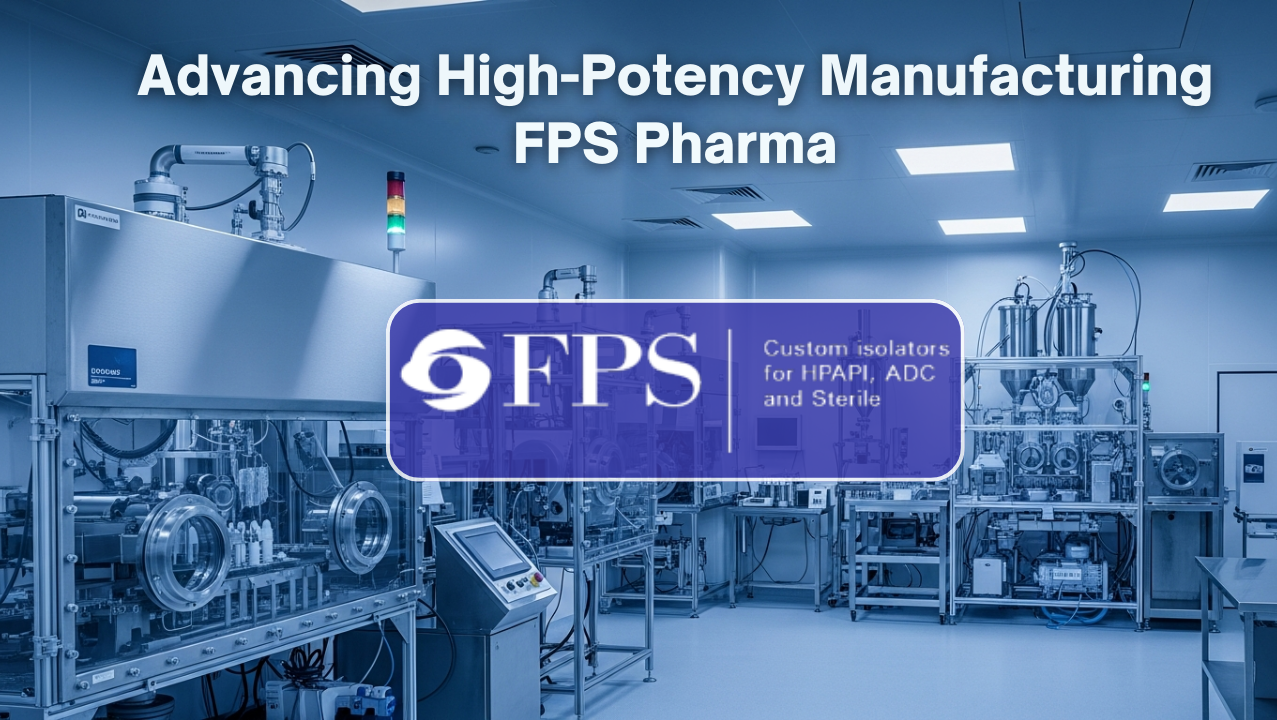Highly Potent Active Pharmaceutical Ingredients (HPAPIs) are revolutionizing therapeutic development, particularly in oncology, neurology, and rare diseases. As the industry advances, regulatory requirements, technological innovations, and sustainability efforts are reshaping HPAPI manufacturing. Thomas Adam, Head of Global QA, Chemical APIs at Bayer | Pharmaceuticals , shares his expert insights on key trends, challenges, and opportunities driving development of HPAPI.
Significant Advancements in HPAPI Development
The growing demand for targeted therapies, such as antibody-drug conjugates (ADCs) and targeted radiotherapy (TRT), is increasing the need for HPAPIs. “These innovations allow for more precise drug delivery, minimizing off-target effects and improving patient outcomes,” says Adam. Additionally, advancements in API molecular engineering enhance potency and selectivity, further optimizing therapeutic efficacy.
Artificial intelligence and automation are playing a crucial role in accelerating HPAPI research. “Machine learning is now optimizing molecular discovery, reducing development timelines, and improving overall efficiency in drug development,” he adds.
Robotics in HPAPI Development & Manufacturing
The implementation of robotic technologies in HPAPI manufacturing is transforming safety, precision, and scalability:
- Enhanced Safety: Robotics minimizes direct human interaction with hazardous materials, significantly reducing exposure risks.
- Precision & Quality: Automated systems ensure accuracy in weighing, blending, and filling processes, maintaining consistency in product quality.
- Scalability & Cost-Efficiency: “Robotic systems allow for rapid, safer production scale-up, which is critical for meeting growing market demands,” Adam explains. Additionally, reducing manual intervention lowers operational costs over time.
New Annex 1 Guidelines & Implications for HPAPI Manufacturing
The updated Annex 1 guidelines for sterile medicinal products introduce stricter control measures, significantly impacting HPAPI production. “The emphasis on contamination control, cleanroom design, and digital compliance tools is reshaping how manufacturers approach HPAPI handling,” notes Adam. Key updates include:
- Contamination Control Strategy (CCS): Manufacturers must implement a robust CCS, integrating robotics and digital systems to mitigate contamination risks.
- Advanced Cleanroom Design: Facilities must comply with higher air quality standards and adopt isolator-based technologies to prevent cross-contamination.
- Closed-System Technologies & Automation: The guidelines encourage using closed systems and automated sterilization for improved safety.
- Data Integrity: Digital solutions are essential for ensuring compliance by maintaining secure, tamper-proof records.
Innovative Manufacturing Technologies Enhancing Safety & Efficiency
To meet growing regulatory and safety demands, the industry is adopting novel manufacturing approaches:
- Containment Systems: Isolators and closed-loop technologies minimize worker exposure and environmental contamination.
- Continuous Manufacturing: This method enhances consistency, reduces production waste, and improves efficiency.
- Modular Facilities: These enable flexible production setups tailored to specific HPAPI needs, optimizing safety and resource utilization.
Strategies for Managing Regulatory Compliance
As global regulations continue to evolve, companies must adapt their compliance strategies. Adam highlights three critical approaches:
- Integrated Compliance Teams: Establishing cross-functional teams ensures alignment with regulatory updates.
- Digital Compliance Solutions: Real-time tracking and documentation management streamline adherence to global regulatory frameworks.
- Risk Management Frameworks: Strong risk assessment models are essential for safe HPAPI handling, storage, and transport.
Sustainability in HPAPI Development & Production
Sustainability is becoming a core priority for pharmaceutical companies. “Adopting green chemistry principles, energy-efficient facility designs, and circular economy practices is key to minimizing environmental impact,” Thomas emphasizes. Efforts include:
- Eco-friendly Solvents & Waste Reduction
- Energy-Efficient Manufacturing Processes
- Solvent Recycling & Circular Economy Practices
Emerging Therapeutic Areas Driving HPAPI Innovation
The demand for HPAPIs continues to grow, particularly in the following therapeutic areas:
- Oncology: ADCs, TRT, and immunotherapies are leading HPAPI applications.
- Neurology: Potent drugs targeting Alzheimer’s and neurodegenerative diseases are gaining traction.
- Rare Diseases: Precision medicine is driving the need for highly potent, targeted molecules.
Key Takeaways for the Industry
Thomas concludes with an outlook on the future of HPAPI development:
Advanced technologies, regulatory strategies, and sustainability initiatives will define the future of HPAPI manufacturing.
Cross-industry collaboration is essential to drive innovation and ensure the safe, efficient production of potent therapeutics.
As the HPAPI sector evolves, companies must embrace automation, compliance modernization, and sustainability to stay ahead in this rapidly advancing field.

Thomas Adam is currently the head of global quality assurance chemical APIs in the chemical development of Bayer AG. He is responsible for the release of chemical APIs for clinical trials and the GMP-Quality system. Thomas holds a PhD in analytical chemistry from the University of Mainz in Germany. He has about 20 years of industrial experience at Bayer AG in different QC/QA-functions and a two years Post-Doc experience at Novartis, Switzerland. He is and was involved in many technical (transfer)-projects so as the planning and launching of the new GMP-kg lab for highly potent APIs and establishing a cleaning concept.
Join the Discussion at the EuroPotent Therapeutics Summit 2025
To explore these cutting-edge advancements and gain firsthand insights from industry leaders like Thomas Adam and many more!
📅 Event Date: 📍 Frankfurt, Germany: 22-23 May 2025
- Network with top experts in development of HPAPI, regulatory compliance, and manufacturing.
- Gain actionable strategies to enhance safety, efficiency, and sustainability in HPAPI production.
- Discover innovative technologies shaping the future of potent pharmaceutical manufacturing.
Register Now & Secure Your Spot!




